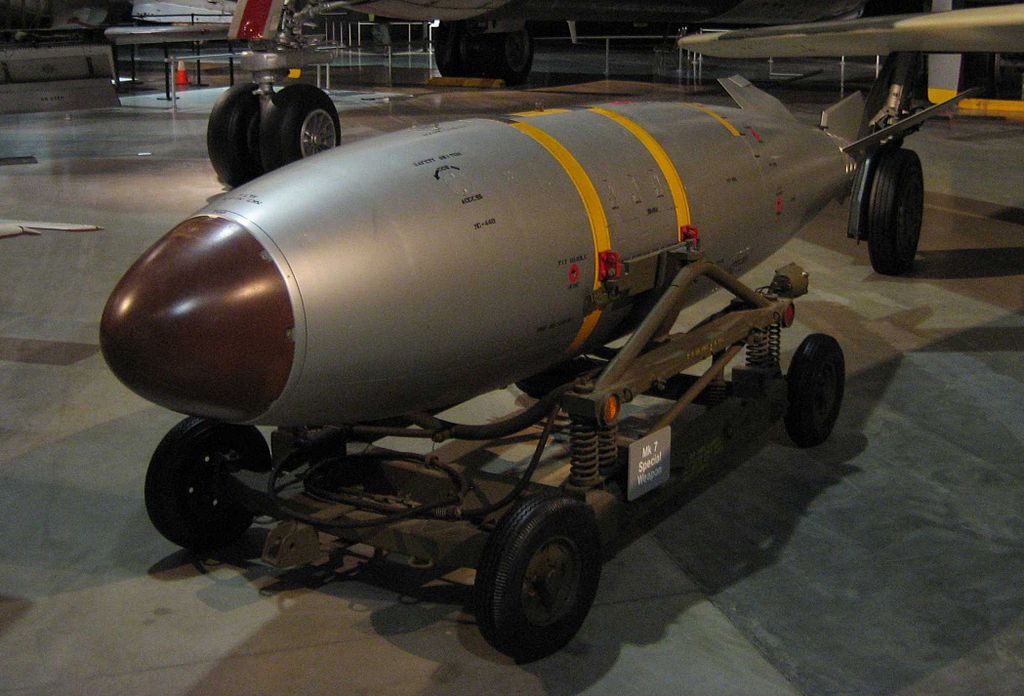Donald Trump has scuttled the Iran Deal, and it is punditry galore. All the “experts” who got Syria, Iraq, Libya, Afghanistan, Egypt, etc. wrong seem to want to offer an opinion. I have mixed views on this deal. I do not think America should be involved in the Middle East. However, Israel has every right to counter Iranian threats; I just believe that America should not backstop them.
Additionally, I have said the same regarding Taiwan, South Korea, Japan and other nations in the Pacific regarding Chinese threats.
My biggest fear is not that Iran will launch nuclear attacks but that this will lead to proliferation in the Middle East. Do you want Erdogan, MBS, and crazies who might be overthrown by even crazier groups to have nuclear warheads? I don’t. I am not sure the best way to ensure that, but if Iran goes nuclear, that will guarantee that Saudi, Egypt, Turkey, etc. all do. Furthermore, these are all extremely unstable countries with some led (Turkey in particular) by absolute madmen. The world should focus on proliferation more than Iran itself.
Anyway (within the past 24 hours, this decision was expected), so here is what analysts were saying before and after.
In short, bank analysts expect heightened regional tension, oil price increases, and possible war.
Iran deal cancelled – analysts react
Barclays
Traditionally, tensions with Iran have translated into broader regional tensions. The former could complicate the Yemeni and Syrian conflicts and increase tensions with Gulf countries. However, the likely focus of the US administration on isolating Iran may accelerate a regional solution to the 11-month-old Qatar-GCC crisis. Anecdotal evidence points to early signs of appeasement of the Gulf crisis.
For example, Qatar received an official invitation to attend the Arab League summit, held on 15 April in Saudi Arabia, although it did not attend the meetings. And President Trump invited Qatar to the GCC+Egypt Camp David summit that was delayed from May to September.
Unconfirmed reports indicate that the Kingdom has returned its military liaison officer to the Qatari al- Udeid base (The Hill, 8 April). And US Secretary of State Mike Pompeo has recently urged Gulf unity in a renewed attempt to ease the political stalemate. We believe a US withdrawal from the JCPOA would accelerate these efforts.
Nomura
The overall economic impact from a reduction in Iran’s oil supply as the result of a collapse of the JCPOA would likely be limited. However, the negative effects could be amplified depending on how financial markets and business sentiment respond. One reason why financial markets and business sentiment could respond disproportionately relates to market concerns that a US withdrawal from the JCPOA would signal increased risk overall to the Middle East. Although Iran produced only 5% of the annual oil output in 2017, a conflict in the Middle East could disrupt supply from Saudi Arabia, the UAE, Kuwait, Iraq and Qatar, which together made up 26% of world supply.
Macquarie
President Trump has likely received hawkish input from new advisors and Middle East allies are concerned the current deal has not reduced Iran’s nuclear ambitions. An eventual military conflict with Iran is unlikely but also not out of the question.
Deutsche Bank
Another market moving Trump tweet late in the US session led to a reversal as he suggested that he would make a statement at 2 pm today Washington time as to whether the US will remain in the Iran nuclear accord. The fact that he didn’t slam the deal again seemed to encourage thoughts that he might stay in the agreement to some degree and some risk premium disappeared. At the close, WTI dipped back near $70 but still +0.40% higher on the session.
deVere Group
Investors should expect an increase in market volatility and ensure that they are properly diversified, warns the senior analyst at one of the world’s largest independent financial advisory organizations
The warning from Tom Elliott, International Investment Strategist at deVere Group, comes as U.S. President Donald Trump announced Tuesday that the United States will exit the Iran nuclear deal and impose “powerful” sanctions.
Mr Elliott comments: “Investors should expect an increase in market volatility following Trump’s announcement that he is quitting the Iran nuclear deal.
“There will be global stock market sell-offs as the world adjusts to the news.”
He continues: “Due to the severity of the U.S. President’s approach, in the shorter term at least it is likely gold and the U.S. dollar may rally on growing fears of further conflicts in the Middle East breaking out; and risk assets, namely stocks and credit markets, may weaken. Oil may rally strongly.
“We will need to wait for the full Iranian response. However, I expect that they will try to continue to appear the reasonable partner and work with Russia and the Europeans, playing them off against the U.S. If they take a more aggressive stance, oil, gold and the dollar will go considerably higher.”
Mr Elliott concludes: “Geopolitical events such as these underscore how essential it is for investors to always ensure that they are properly diversified: this includes across asset classes, sectors and geographical regions – to mitigate potential risks to their investment returns.”




